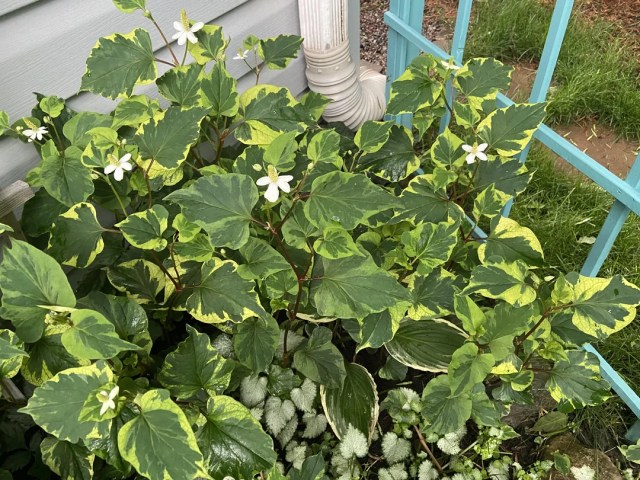A Reddit user reached out to a community of plant enthusiasts for help identifying an invasive species and was met with multiple messages to immediately remove the plant.
"What is this variegated vine with white flowers? Very invasive, spreads everywhere but doesn't climb. How do I get rid of it?" the poster wrote above a photo of the plant.

A gardener identified it as a chameleon plant, also known as fish mint. One Redditor informed the original poster the species smells like fish when the leaves are broken and confirmed that it is a fast-spreading invasive species that will quickly take over, urging the OP to "act quick" in its removal.
As an invasive species, the chameleon plant "can be very difficult to remove once established," according to North Carolina State Extension, which is characteristic of most invasive plants. Invasive species are not native to where they are growing and can quickly spread, taking over other plants and gardens and causing serious environmental threats, the U.S. Forest Service warns.
Two of the easiest and most eco-friendly ways to combat invasive species are to rewild your yard or upgrade to a natural lawn.
When you rewild your yard, you allow native plants to grow naturally. This type of landscape uses less water and does not require toxic pesticides, which makes it an environmentally friendly option.
Watch now: Giant snails invading New York City?
Plants native to their region are also better for local pollinators, which then help the vegetation grow naturally and bloom into a beautiful garden that is easy to maintain. Low maintenance, cost-effective, and environmentally friendly — what's not to like?
Upgrading to a natural lawn like clover or buffalo grass is another low-maintenance option that supports pollinators and saves water. Low-lying native plants and wildflowers make for a beautiful lawn that does not have to be mowed or watered like a grass lawn, which can be seasonal, time-consuming, and costly to maintain. Why fight it? Natural lawns look great and require minimal cost and time.
Commenters had plenty of advice for the OP, mostly to get ahead of the unwanted species.
|
How often will you be gardening this summer? Click your choice to see results and speak your mind. |
"No joke, make sure you dig up every last scrap," wrote one. "I've spent two years trying to get rid of it."
"Got to get every bit of root," warned another.
Why battle your yard if you don't have to? Save time and money, and help the planet out by allowing native species to thrive, the way nature intended.
Join our free newsletter for easy tips to save more and waste less, and don't miss this cool list of easy ways to help yourself while helping the planet.













